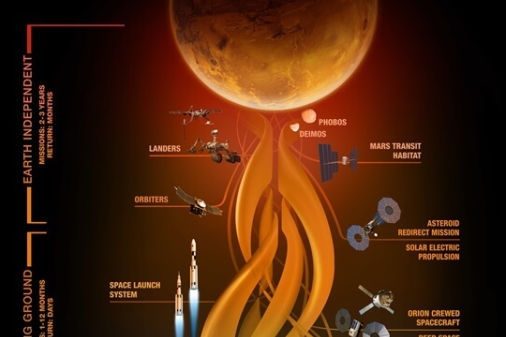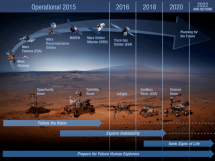
The National Aeronautics and Space Administration (NASA) had tremendous achievements last year in its attempt to explore Mars, most notably the discovery of liquid water traces on the Red Planet.
Despite this, space experts recently warned Congress that the space agency's journey to Mars will still encounter bumps ahead.
During a hearing of the House of Representatives' Science Committee, Tom Young, the former director of NASA's Goddard Space Flight Center, said the space agency needs a transition plan for its Mars Mission, to ensure that it will pass the scrutiny of the new administration that will take over the White House late this year.
"A new administration will be in place in about a year," Young told members of Congress, as quoted by Arstechnica.com. "Without a plan it will be difficult to obtain support for Mars and avoid another redo of the content and focus of the United States human spaceflight program."
He added that NASA should outline how it plans exactly to send a human mission to Mars in the future.
"What we do not have is a plan, strategy, or architecture with sufficient detail that takes us from today to humans on the surface of Mars," said Young, who also served as president and chief operating officer of the Martin Marietta Corporation.
John Sommerer, a space scientist who spent more than a year as chairman of a National Research Council technical panel reviewing NASA's human spaceflight activities, meanwhile, said it will take a lot of preparations and resources for the space agency to be able to send human beings to Mars.
"While sending humans to Mars, and returning them safely to the Earth, may be technically feasible, it is an extraordinarily challenging goal, from physiological, technical, and programmatic standpoints," Sommerer said.
"Because of this extreme difficulty, it is only with unprecedented cumulative investment, and, frankly, unprecedented discipline in development, testing, execution, and leadership, that this enterprise is likely to be successful," he added.
Sommerer also estimated that it would take NASA 20 to 40 years, and some half a trillion U.S. dollars, to be able to launch the first manned mission to the Red Planet.














